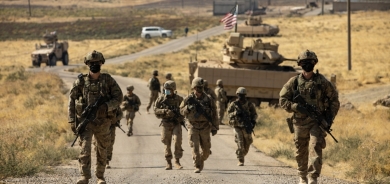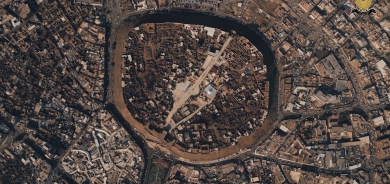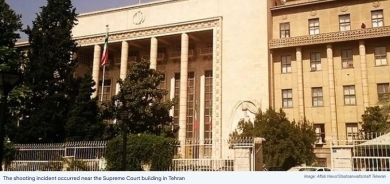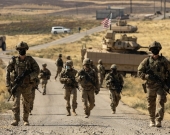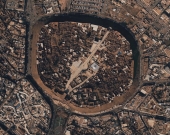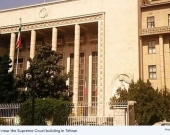UN warns of ‘ethnic cleansing’ in Central African Republic

French troops on patrol in a rural region west of Bangui, capital of the Central African Republic, make an alarming discovery, highlighting the seriousness of the sectarian conflict that threatens to divide this impoverished nation.
At a militia checkpoint in the west of the country, the most populous region of the Central African Republic (CAR), troops from the First Parachute Hussar regiment find an anti-tank mine with a large explosive charge.
Just off the dirt road, there are even more dangers in store.
At an abandoned army base, huge cargo containers spill out masses of heavy weapons, including 120 mm mortars, rockets and rocket launchers.
“It's a former military base, and there are still a lot of munitions,” explains Brigadier Chief Alexandre. “A specialist unit will come and collect everything we've found here.”
The troops do not know who left the munitions behind – it could be any number of armed groups that continue to operate, in some shape or form, in this lawless region.
In an interview with FRANCE 24 in Bangui on Tuesday, UN High Commissioner for Refugees Antonio Guterres said Muslim civilians in the CAR were facing a “massive ethno-religious cleansing” and that the former French colony was facing “a humanitarian catastrophe”.
UN Security-General Ban Ki-moon on Tuesday warned that the CAR could be split in two.
Ban's comments marked the first time the UN chief has raised the possibility of the strife-ridden country being divided into Christian and Muslim regions. He coupled it with a warning that the international response doesn't yet match the gravity of the situation and a plea for global action.
On Wednesday, Amnesty International warned that “ethnic cleansing” was being carried out against Muslim civilians in the CAR. The London-based group said it had documented at least 200 killings of Muslim civilians by Christian militia groups known as the anti-balaka.
The country slipped into chaos after predominantly Muslim Seleka rebels deposed president François Bozizé in a March coup. The rebel group was officially disbanded after it seized power, but some of its former members launched a campaign of killing, raping and looting, prompting some communities in the Christian-majority nation to form vigilante militias.
The anti-balaka have now become the main threat to peace and security in the country, according to General Francisco Seriano, commander of the French mission in the CAR.
Establishing contact with anti-balaka men and women
Disarming the diffused, disorganised anti-balaka militias has proved to be the biggest challenge confronting the roughly 7,000 foreign troops in the CAR – including 1,600 French soldiers and a 5,400-strong African peacekeeping force.
At a village in the west of the country, troops from the First Parachute Hussar regiment on patrol hold an impromptu meeting with anti-balaka militia members.
Lieutenant Gueric attempts to get a grip on the number of armed men in the village.
Dressed in camouflage jackets and T-shirts, and sporting an array of bandanas and other headgear, a motley mix of young men reveal that there are 127 anti-balaka militia men and women in the village.
“There are many out-of-control people in the Central African Republic,” explains Lieutenant Gueric. “Many of them have suffered terribly, and so it's very difficult to bring them in line. That's why it's important we get contact with the militia leaders, to get a handle on these people, who are a danger to everyone.”
But getting the anti-balaka under control in a Christian-dominated country with an unnamed number of youths bent on extracting revenge and settling scores is going to be a tough job for international troops.
Standing with a group of tough-looking men, a young female anti-balaka member shows no sign of remorse or willingness to disband.
“I joined the anti-balaka to help my country, which is being devastated by Muslims,” she says. “That's why I went into the countryside to join them.”
Far from the calls for peace by community elders and the warnings at international forums, the rhetoric of hatred remains loud and clear in this sprawling landlocked nation, representing a serious threat not just to the CAR, but to the entire region.
FRANCE 24


